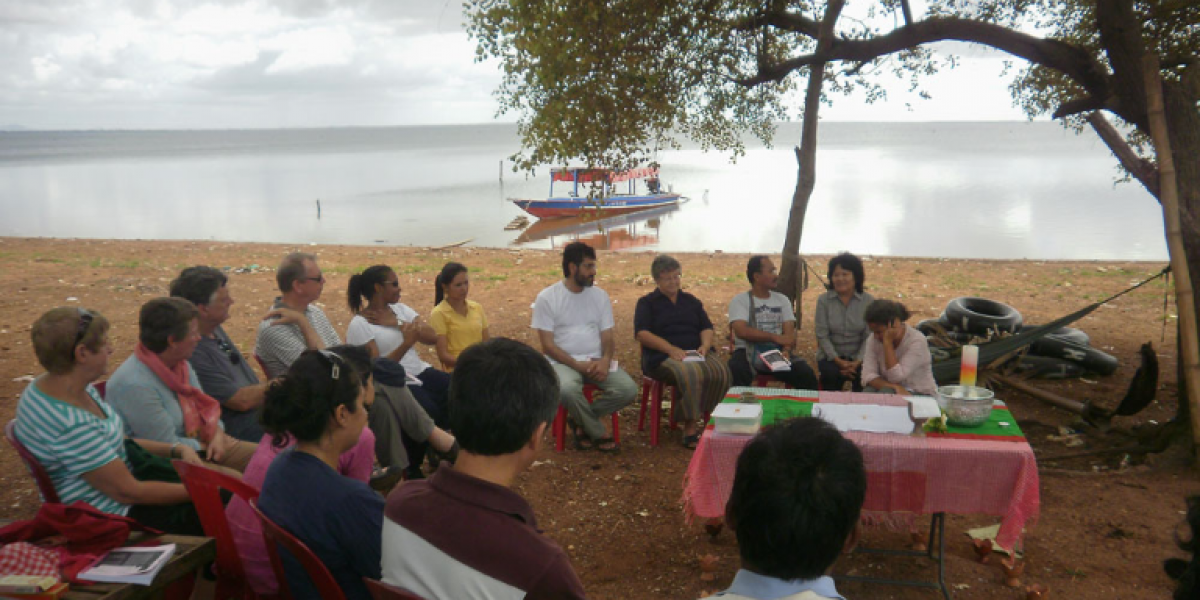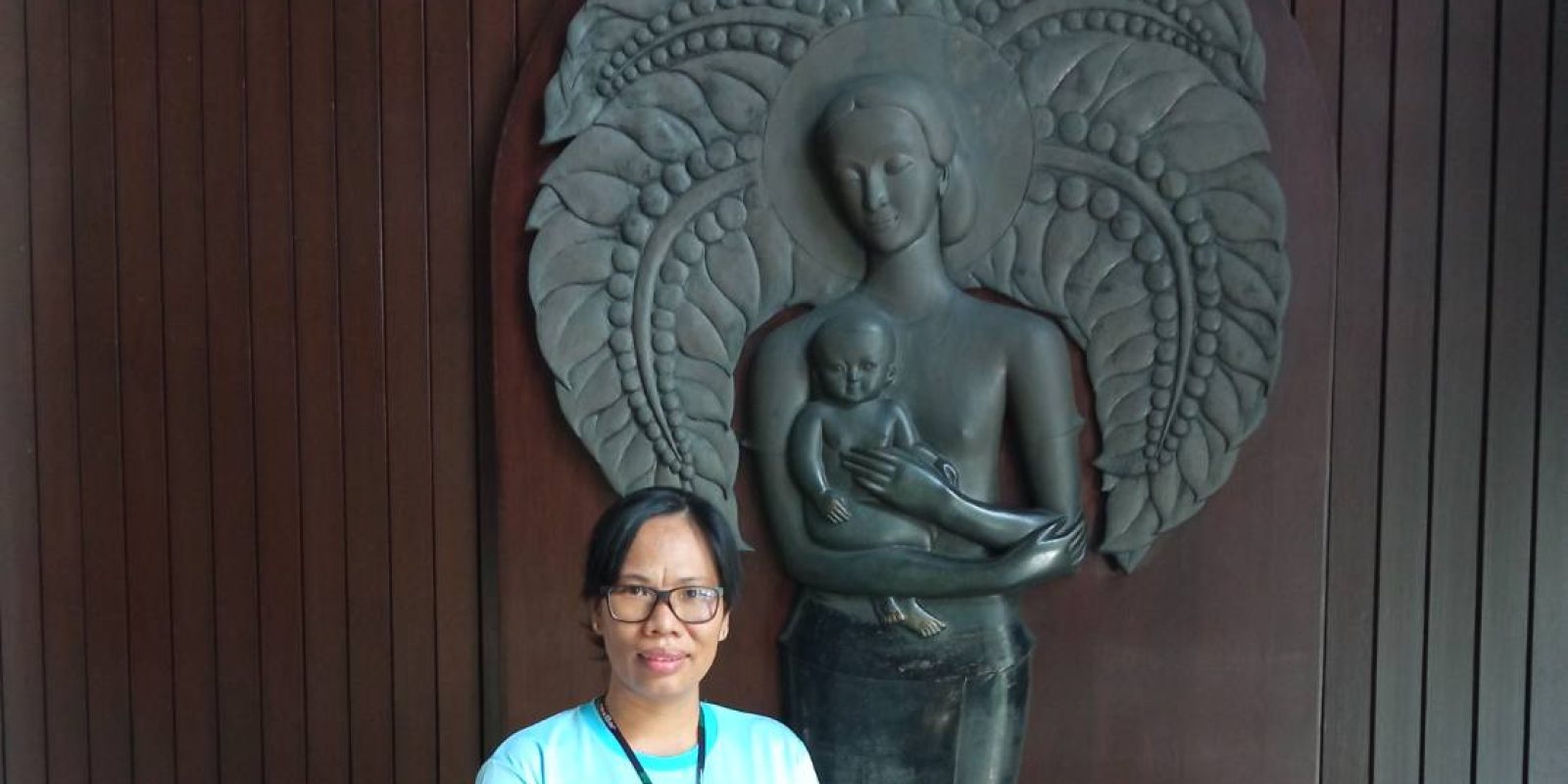Praying with Refugees in Cambodia: return requires constant trust and forgiveness
01 September 2013

Siem Reap, 1 September 2013 — When the landscape of home is a constant reminder of terrible injustice, how do you forgive and move forward, with neighbours who were once your jailers?
In June 2013, more than 20 old and new JRS staff, from 12 different countries, gathered at the restful Mihndol Metta Karuna Interfaith Retreat Centre in Siem Reap, Cambodia to discuss the concept of reconciliation.
The workshop, the first-of-its kind, aimed to combine best practices from JRS sites around the world with moral philosophy contributions by Boston College staff, an Islamic scholar and a Cambodian Buddhist monk, in order to develop a unified interfaith understanding of reconciliation, which JRS can use to better accompany refugees moving forward.
“We were privileged to learn about the practice of forgiveness from former refugees in Cambodia, who have experienced the pain of forced displacement under the Khmer Rouge and the long road to forgiveness”, said Junita Calder, JRS Asia Pacific Advocacy Officer.
Sok Eng, an elegant, seemingly ageless woman with a peaceful smile, survived eviction from Phnom Penh and forced labour in the Cambodian countryside for several years during the 1970s.
She shared her individual story of persecution and return— one that, devastatingly, is typical of the experiences of thousands of persons displaced by the Khmer Rouge during their rule from 1975 until 1979. During this time, more than one million people were executed and an estimated 2.25 million people died of famine, starvation and related disease, according to the UN and the Red Cross.
Sok Eng believes she was saved from torture, death and drowning on several occasions because she had integrity and was willing to surrender to a higher power, who she now calls God.
“[In the labour camp], I always tried to work hard and be honest but sometimes even that did not help – I was hauled in for questioning anyway. When my own strength was not enough, I let go of all my material possessions and accepted that whatever happened to me, would happen – when I trusted like that, I survived”, said Sok Eng.
Faith helped Sok Eng to eventually return to the same area where she had been put to work to live in peace with those who had imprisoned her and had stood by indifferently while her family died from starvation and exhaustion.
Before celebrating Mass and praying together on the shore of Trapeang Thmor Reservoir – which was built by Sok Eng and hundreds of other forced labourers, many of whom lost their lives – Sok Eng shared publicly how long and difficult the journey of forgiveness can be.
“I must confess, Father, I have not yet completed the work of forgiveness in my own heart…but I have come a long way…and I will keep trying”, she said.
May Sok Eng’s hardworking spirit, trust and perseverance to forgive inspire us all to accompany refugees on their journeys. Let us have particular sympathy for those who are returning to their homelands where they were previously abused, those who are surrounded daily by geographical reminders of their pain and loss.
It is no easy thing to undertake the journey of reconciliation, to admit that we cannot always resolve injustice, nor persevere in the face of it, nor forgive our enemies, all on our own. Sometimes we may need to trust in something beyond ourselves.
From where do you draw your strength? In whom do you put your trust? What inspires you to forgive?


